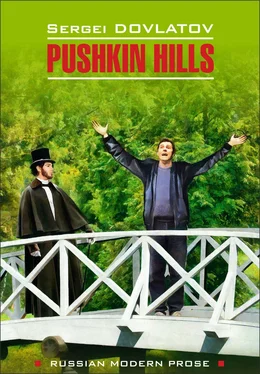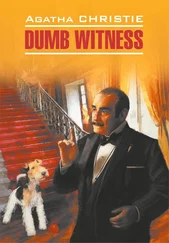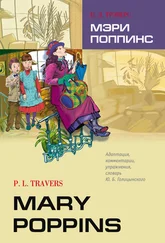No, I think not. How could it get overgrown, the poor thing, being trampled by squadrons of tourists?.
“Mornings here are a total clusterfuck,” said Galina.
And once again I was surprised by the unexpected turn of her language.
Galina introduced me to the office instructor, Lyudmila. I would secretly admire her smooth legs till the end of the season. Luda had an even and friendly temperament. This was explained by the existence of a fiancé. She hadn’t been marred by a constant readiness to make an angry rebuff. For now her fiancé was in jail…
Shortly after, an unattractive woman of about thirty appeared: the methodologist. Her name was Marianna Petrovna. Marianna had a neglected face without defects and an imperceptibly bad figure.
I explained my reason for being there. With a sceptical smile, she invited me to follow her to the office.
“Do you love Pushkin?”
I felt a muffled irritation.
“I do.”
At this rate [28] at this rate – так; если так будет продолжаться
, I thought, it won’t be long before I don’t.
“And may I ask you why?”
I caught her ironic glance. Evidently the love of Pushkin was the most widely circulated currency in these parts. What if I were a counterfeiter, God forbid?
“What do you mean?” I asked.
“Why do you love Pushkin?”
“Let’s stop this idiotic test,” I burst out. “I graduated from school. And from university.” (Here I exaggerated a bit; I was expelled in my third year.) “I’ve read a few books. In short, I have a basic understanding… Besides, I’m only seeking a job as a tour guide…”
Luckily, my snap response went unnoticed. As I later learnt, basic rudeness was easier to get away with [29] to get away with – сходить с рук
here than feigned aplomb.
“And nevertheless?” Marianna waited for an answer. What’s more, she waited for a specific answer she had been expecting.
“OK,” I said, “I’ll give it a try. Here we go. Pushkin is our belated Renaissance [30] Renaissance – Ренессанс, или Возрождение, эпоха в истории культуры Европы (XV–XVI вв.)
. Like Goethe was for Weimar [31] Goethe. Weimar – Иоганн Вольфганг фон Гёте (17491832), немецкий писатель, философ и государственный деятель. Веймар, город в Германии, где с 1775 по 1832 год жил Гёте
. They took upon themselves what the West had mastered in the fifteenth, sixteenth and seventeenth centuries. Pushkin found a way to express social themes in the form of tragedy, a characteristic of the Renaissance. He and Goethe lived, if you will, in several eras. Werther is a tribute to sentimentalism. Prisoner of the Caucasus is a typically Byronesque work. But Faust, for instance – that’s already Elizabethan and the Little Tragedies naturally continue one of the Renaissance genres. The same with Pushkin’s lyricism. And if it’s dark, then it isn’t dark in the spirit of
Byron [32] Werther… Prisoner of the Caucasus… Faust… Little Tragedies… Byron – «Страдания юного Вертера» (1774), сентиментальный роман Гёте. «Кавказский пленник» (1821), поэма Пушкина (1799–1837). «Фауст» (1774–1831), трагедия Гёте. «Маленькие трагедии» (1830), цикл коротких пьес Пушкина. Джордж Гордон Байрон (1788–1824), английский поэт-романтик
but more in the spirit of Shakespeare’s sonnets, I feel. Am I explaining myself clearly?”
“What has Goethe got to do with anything?” asked Marianna. “And the same goes for the Renaissance!”
“Nothing!” I finally exploded. “Goethe has absolutely nothing to do with this! And ‘Renaissance’ was the name of Don Quixote’s horse [33] Don Quixote’s horse – Дон Кихот, герой романа испанского писателя Мигеля де Сервантеса (1547–1616), но имя коня Дон Кихота не Ренессанс, а Росинант.
. And it too has nothing to do with this! And evidently I have nothing to do with this either!”
“Please calm down,” whispered Marianna. “You’re a bundle of nerves… I only asked, ‘Why do you love Pushkin?’”
“To love publicly is obscene!” I yelled. “There is a special term for it in sexual pathology!”
With a shaking hand she extended me a glass of water. I pushed it away.
“Have you loved anyone? Ever?!”
I shouldn’t have said it. Now she’ll break down and start screaming: “I am thirty-four years old and I am single!”
“Pushkin is our pride and joy!” managed Marianna. “He is not only a great poet, he is also Russia’s great citizen…”
Apparently this was the prepared answer to her idiotic question.
And that’s it? I thought.
“Do look at the guidelines. Also, here is a list of books. They are available in the reading room. And report to Galina Alexandrovna that the interview went well.”
I felt embarrassed.
“Thank you,” I said. “I’m sorry I lost my temper.”
I rolled up the brochure and put it in my pocket.
“Be careful with it – we only have three copies.”
I took the papers out and attempted to smooth them with my hands.
“And one more thing,” Marianna lowered her voice. “You asked about love…”
“It was you who asked about love.”
“No, it was you who asked about love. As I understand, you are interested in whether I am married? Well, I am!”
“You have robbed me of my last hope,” I said as I was leaving.
In the hallway Galina introduced me to Natella, another guide. And another unexpected burst of interest:
“You’ll be working here?”
“I’ll try.”
“Do you have cigarettes?”
We stepped onto the porch.
Natella had come from Moscow at the urge of romantic, or rather reckless ideas. A physicist by education, she worked as a schoolteacher. She decided to spend her three-month holiday here. And regretted coming. The Preserve was total pandemonium. The tour guides and methodologists were nuts. The tourists were ignorant pigs. And everyone was crazy about Pushkin. Crazy about their love for Pushkin. Crazy about their love for their love. The only decent person was Markov…
“Who is Markov?”
“A photographer. And a hopeless drunk. I’ll introduce you. He taught me to drink Agdam [34] Agdam: An Azeri fortified white wine.
. It’s out of this world [35] out of this world – фантастический, дословно «неземной», т. е. превосходный, великолепный» и т. д.
. He can teach you too…”
“Much obliged. But I’m afraid that in that department I myself am an expert.”
“Then let’s knock some back one day! Right here in the lap of nature.”
“Agreed.”
“I see you are a dangerous man.”
“How do you mean?”
“I sensed it right away. You are a terribly dangerous man.”
“When I’m not sober?”
“That’s not what I’m talking about.”
“I don’t understand.”
“To fall in love with someone like you is dangerous.”
And Natella gave me an almost painful nudge with her knee.
Christ, I thought, everyone here is insane. Even those who find everyone else insane.
“Have some Agdam,” I said, “and calm down. I want to get some rest and do a little work. I pose you no danger…”
Читать дальше












